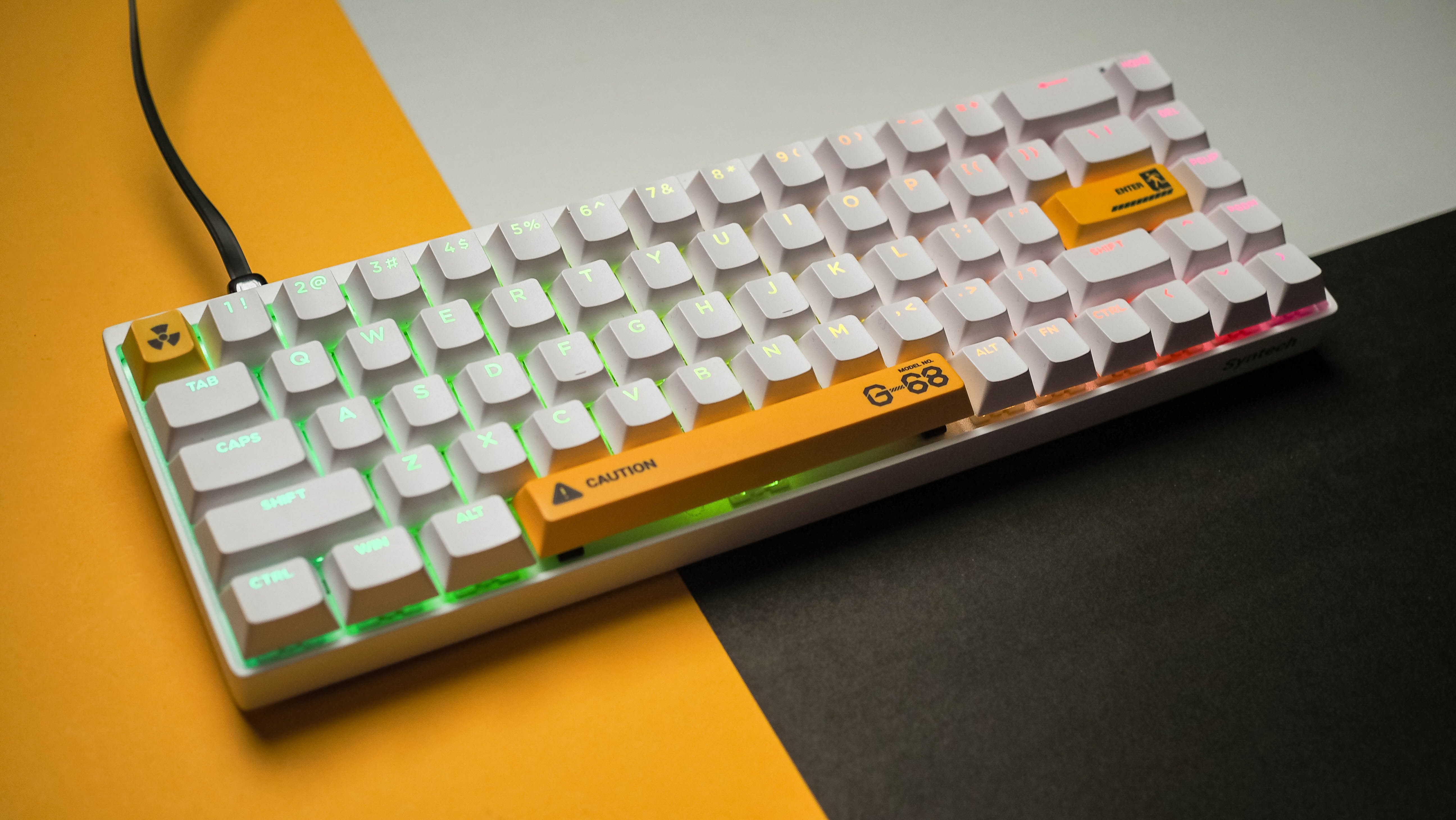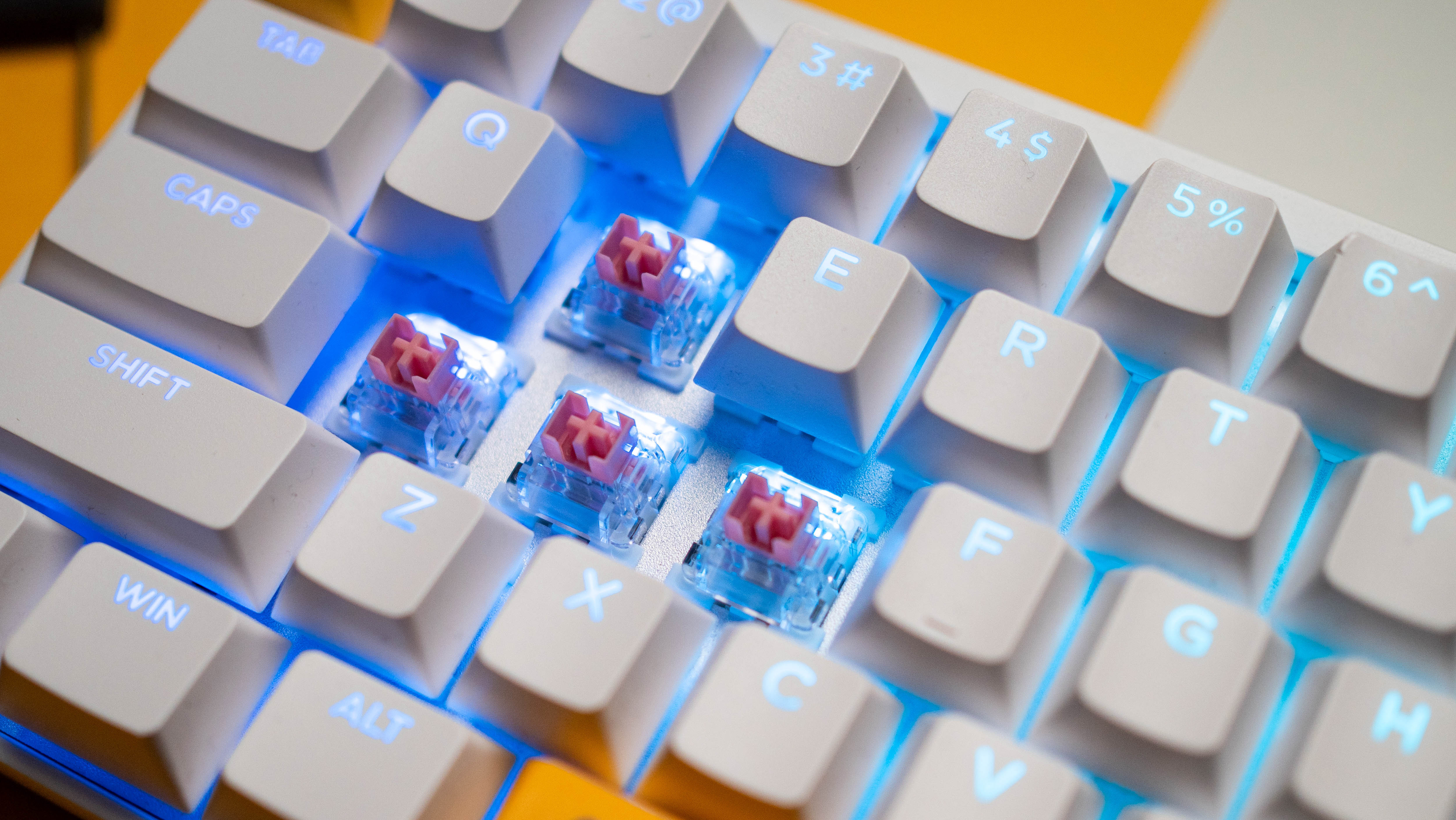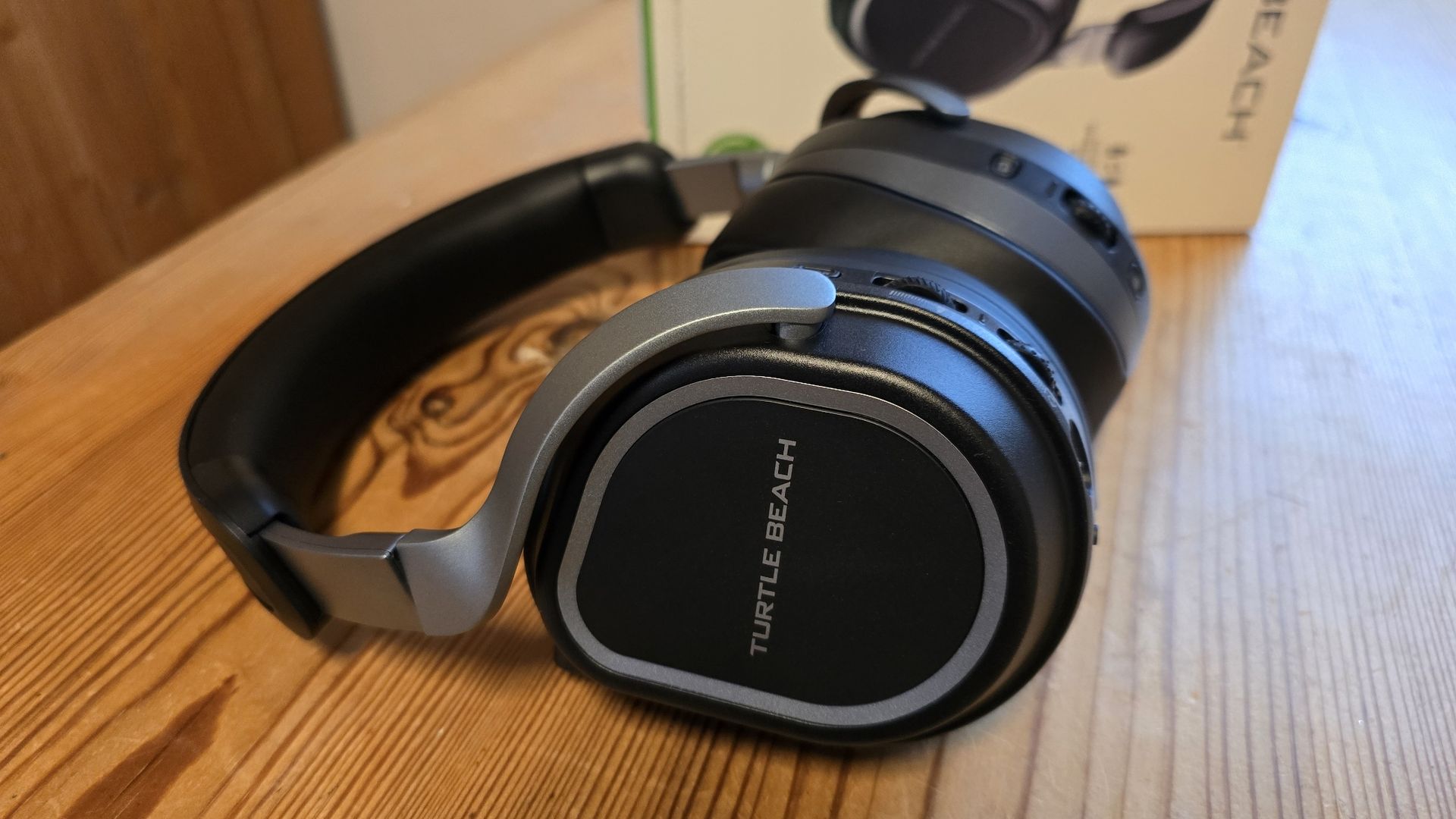This hall effect gaming keyboard is so fast it should be illegal
With 8,000Hz polling and a customizable actuation point, the Syntech Chronos 68 is a standout gaming keyboard.
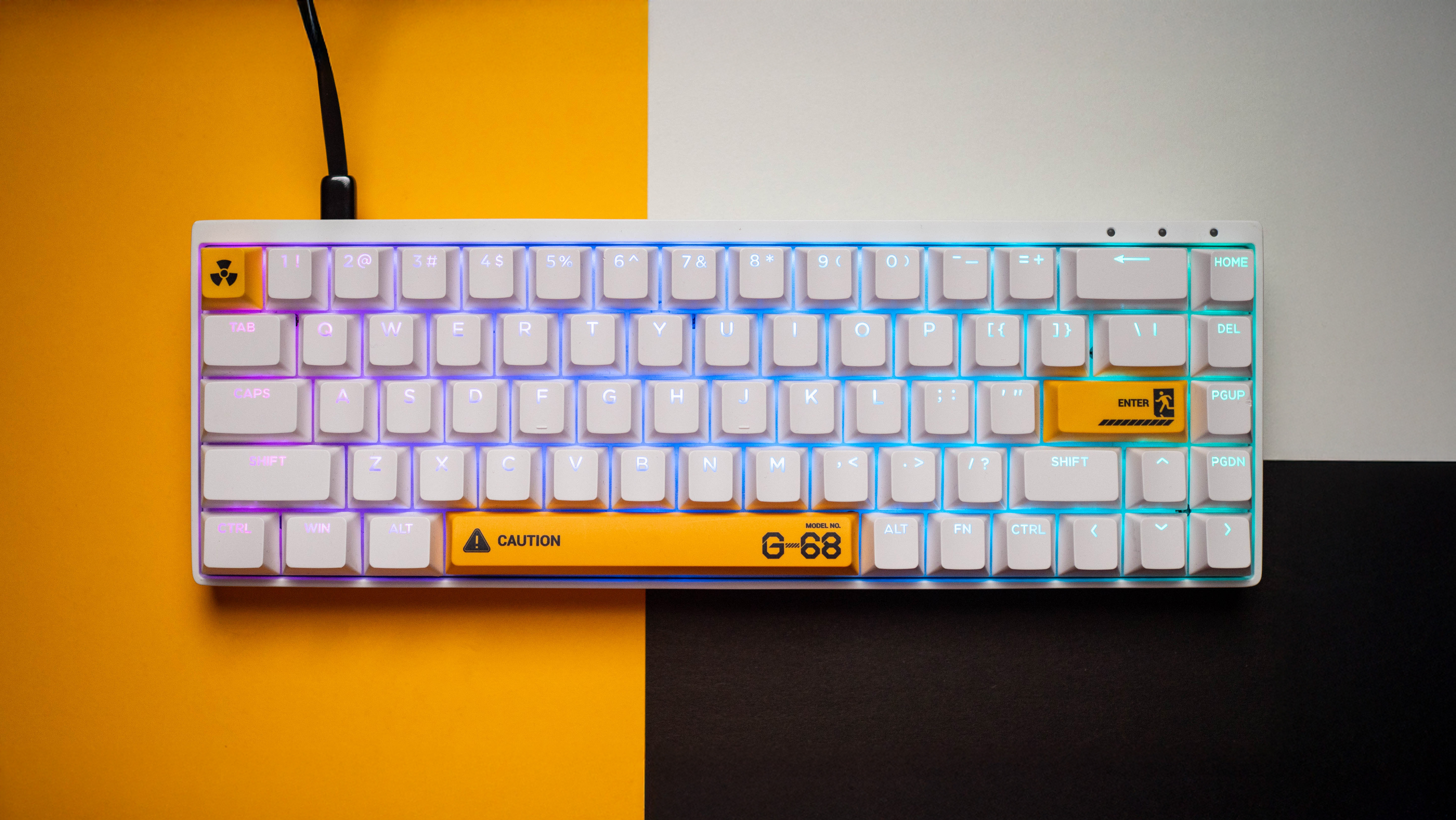
All the latest news, reviews, and guides for Windows and Xbox diehards.
You are now subscribed
Your newsletter sign-up was successful
The latest trend in mechanical keyboards is hall effect switches; these switches rely on magnets instead of conventional pins to make contact with the keyboard, and they come with a distinct advantage: the ability to customize the actuation point.
Doing so has inherent benefits to gaming, as you don't have to press a key all the way down to trigger the keystroke. Keychron, Glorious, and other DIY keyboard brands have plenty of products in this category, and even the likes of Corsair are getting started with HE boards.
Syntech is a new brand that's looking to get in on the action. It is the latest in a long line of Chinese manufacturers that have burst onto the scene in recent years, and like most of its rivals, Syntech is catering to keyboard enthusiasts.
How much does the Syntech Chronos 68 cost?
Syntech is best-known for its handheld console and Meta Quest VR accessories, and the Chronos 68 sees its debut in the world of mechanical keyboards. The Chronos 68 is a 65% keyboard with 68 keys in total, and it is on the smaller end of the scale as these products go. The keyboard costs $139, and it is available in white and black models.
I'm using the white version of the keyboard, and it comes with yellow accents that livens up the design a little. The smaller size means it easily fits on a desk without taking up too much room, and the frame itself is made out of aluminum. Even then, the keyboard isn't particularly heavy at 850g, and it stays planted on a desk thanks to the heft, and the four rubber feet at the bottom ensure it doesn't move around.
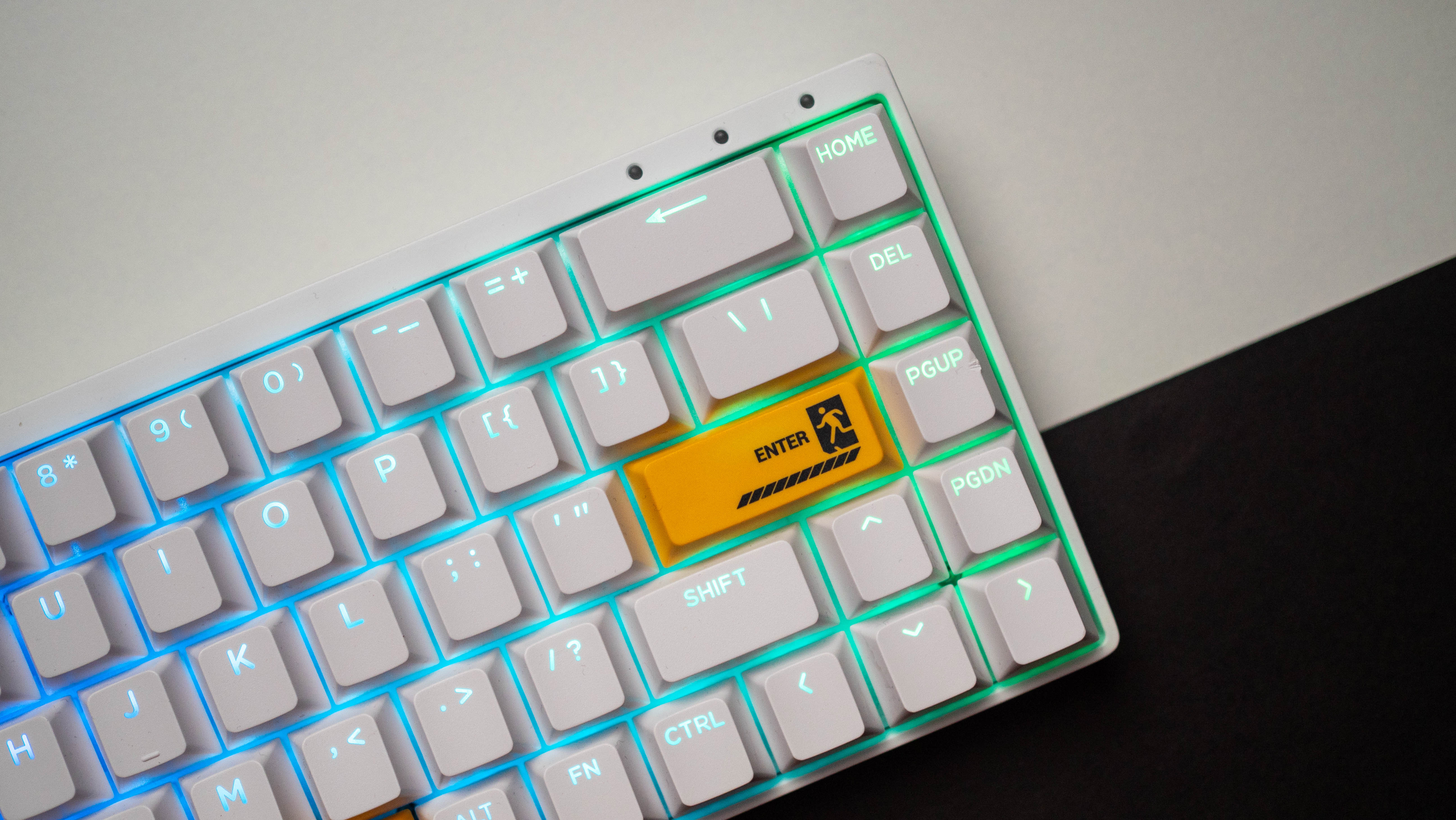
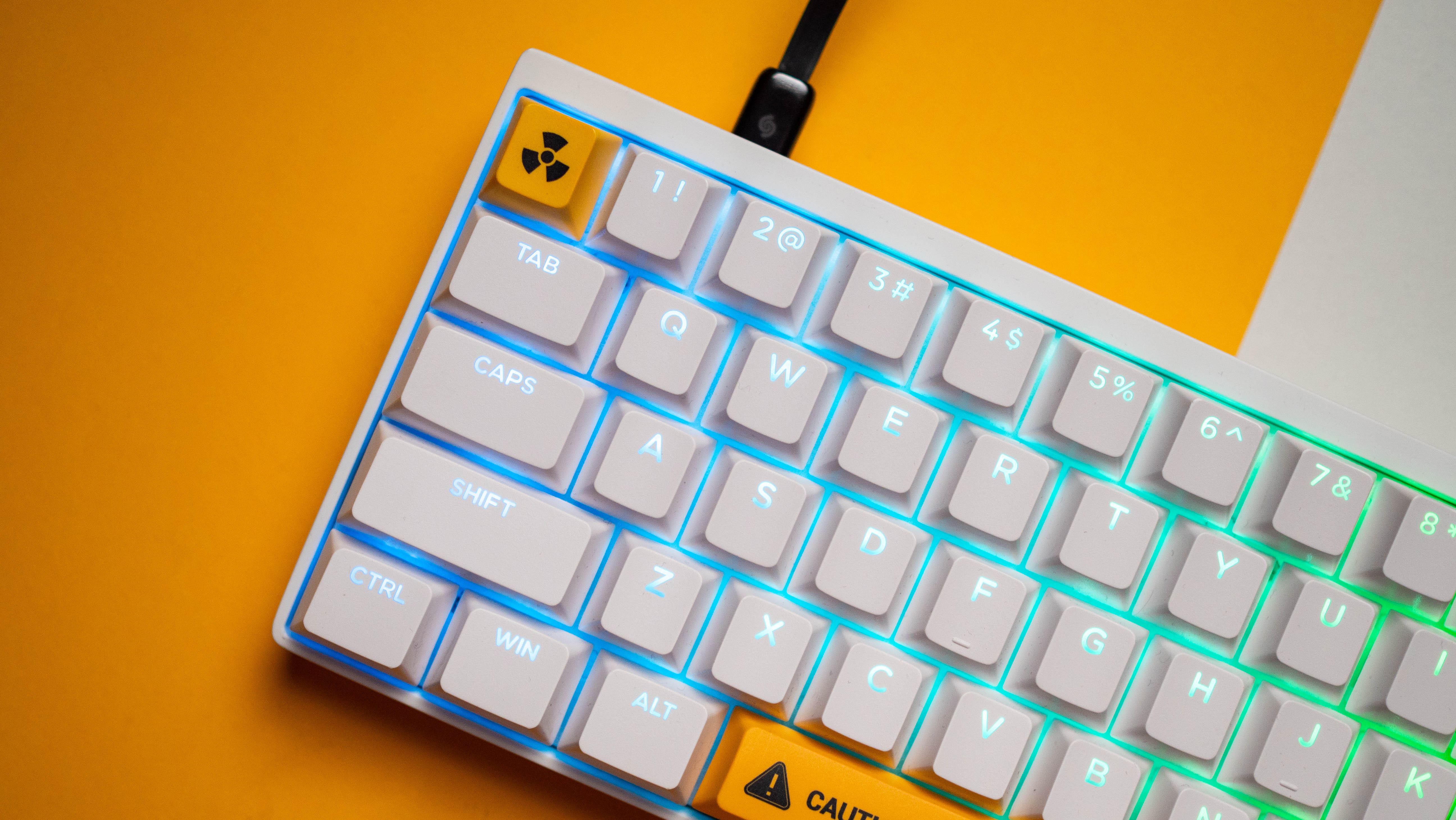
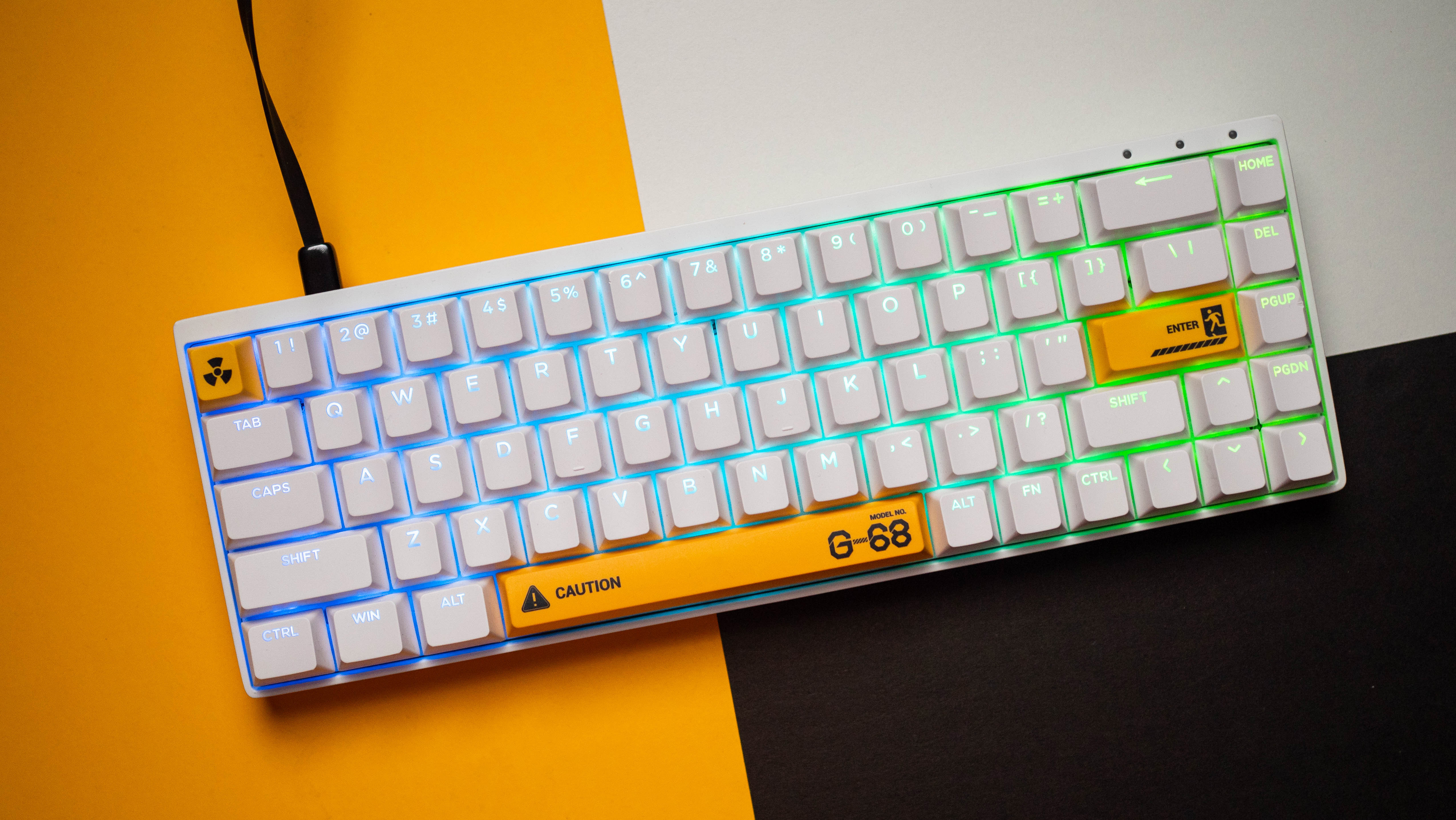
Like other keyboards in this category, the Chronos 68 uses two foam layers to deliver a better typing experience, and it genuinely makes a difference. It isn't a gasket-mounted board, so it misses out on the bounciness, but it has smooth actuation and decent acoustics. Build quality is great, and I didn't see any issues in this area in the two months I used the keyboard.
What I particularly like is that the keycaps have see-through legends, allowing RGB lighting to shine bright. The built-in LEDs get bright, and you get a decent number of lighting effects. The PBT keycaps are of good quality, and the matte coating ensures no smudging; they still look pristine after two months.
All the latest news, reviews, and guides for Windows and Xbox diehards.
The highlight of the Chronos 68 is the hall effect switches; you can customize the switches as needed, with Syntech offering Gateron's excellent Magnetic Jade Pro linear switches as an alternative to the default Outemu Magnetic Sealed Switch. The caveat is that you'll need to shell out an additional $40 to switch to Gateron.
I'm using the Outemu Magnetic switch, and it's pretty good in its own right. I still prefer Gateron's Jade Pro as they have smoother actuation and just feel better in daily use, but Outemu's alternative is decent, while not being anywhere as costly.
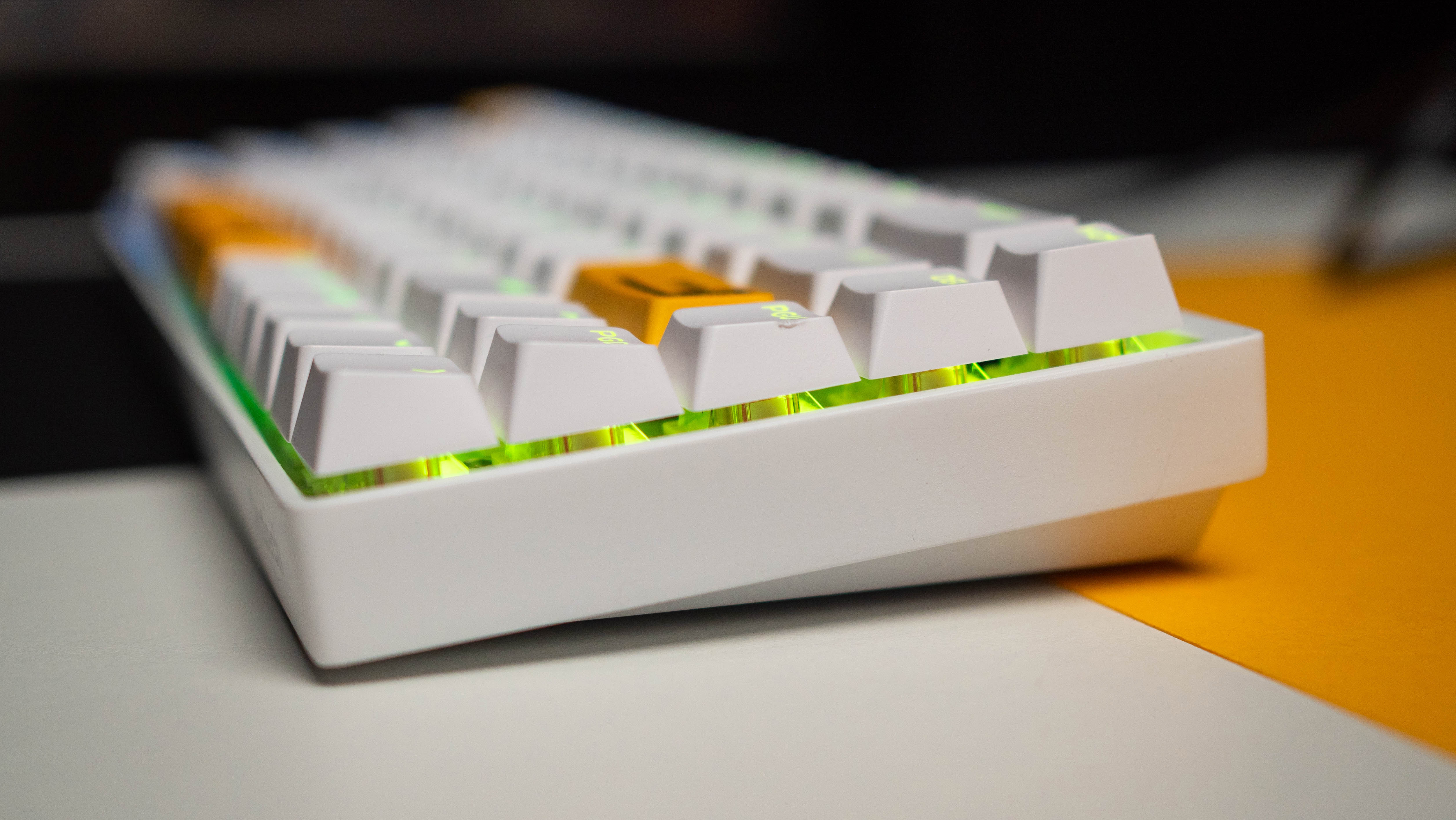
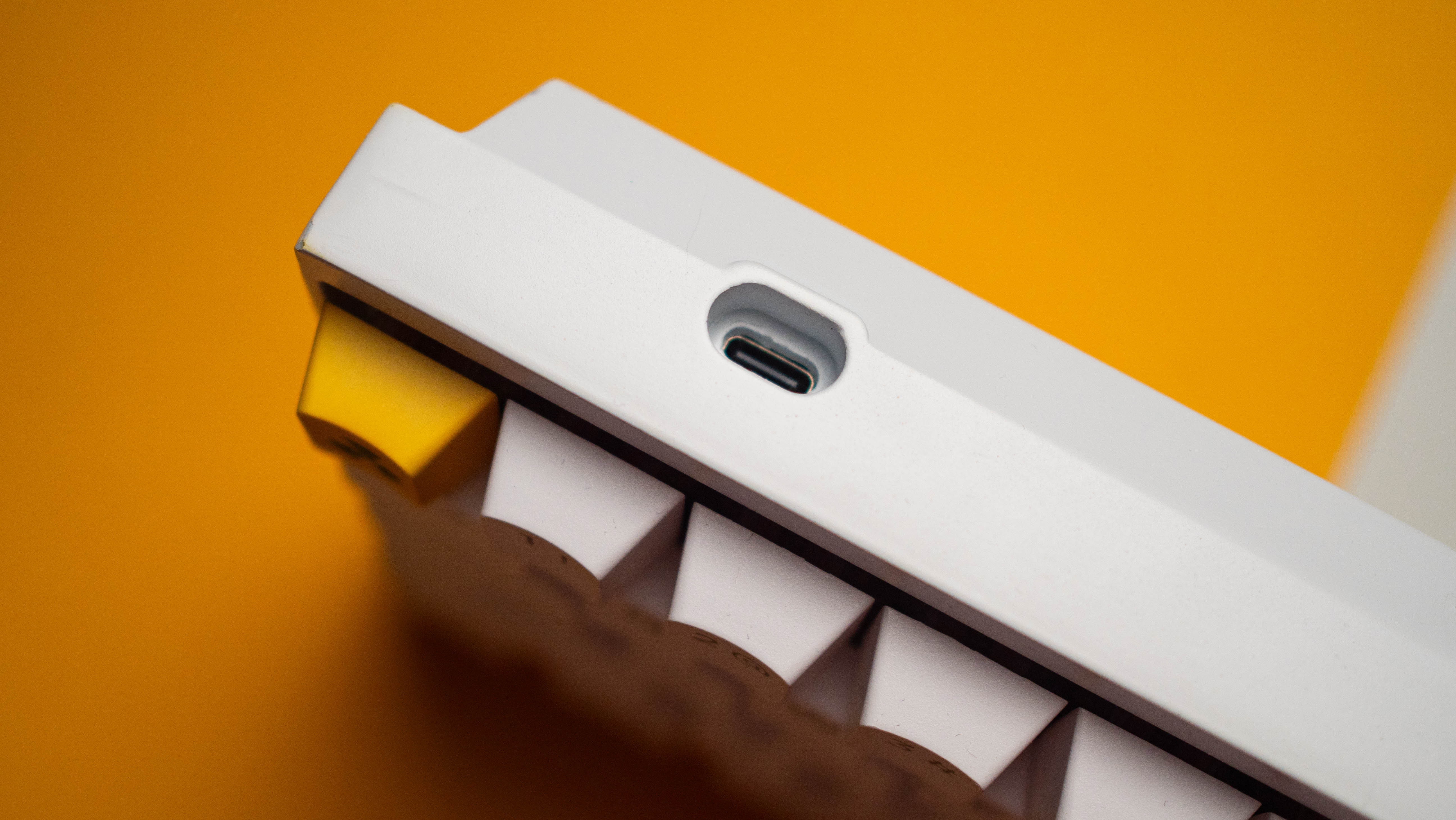
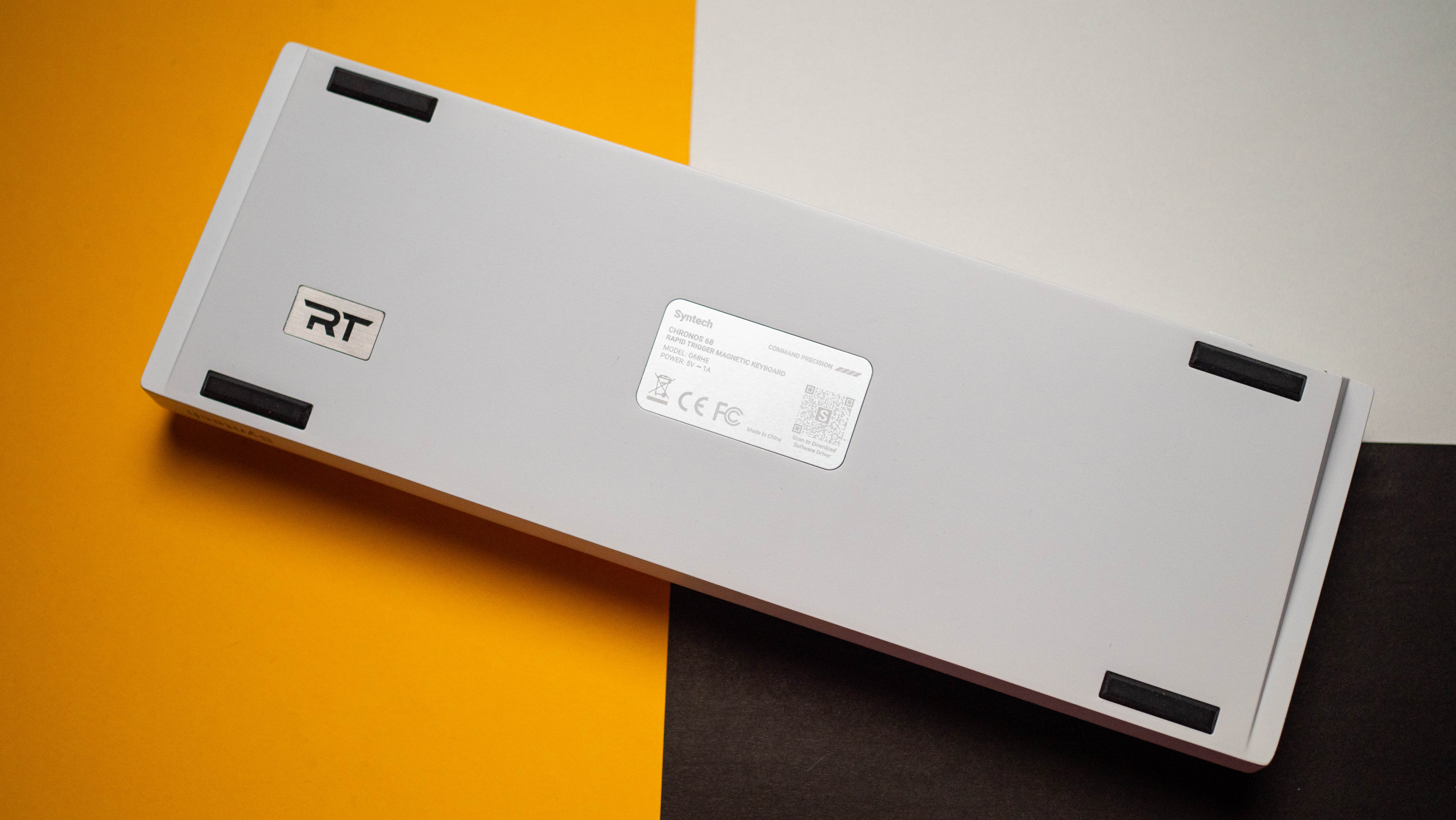
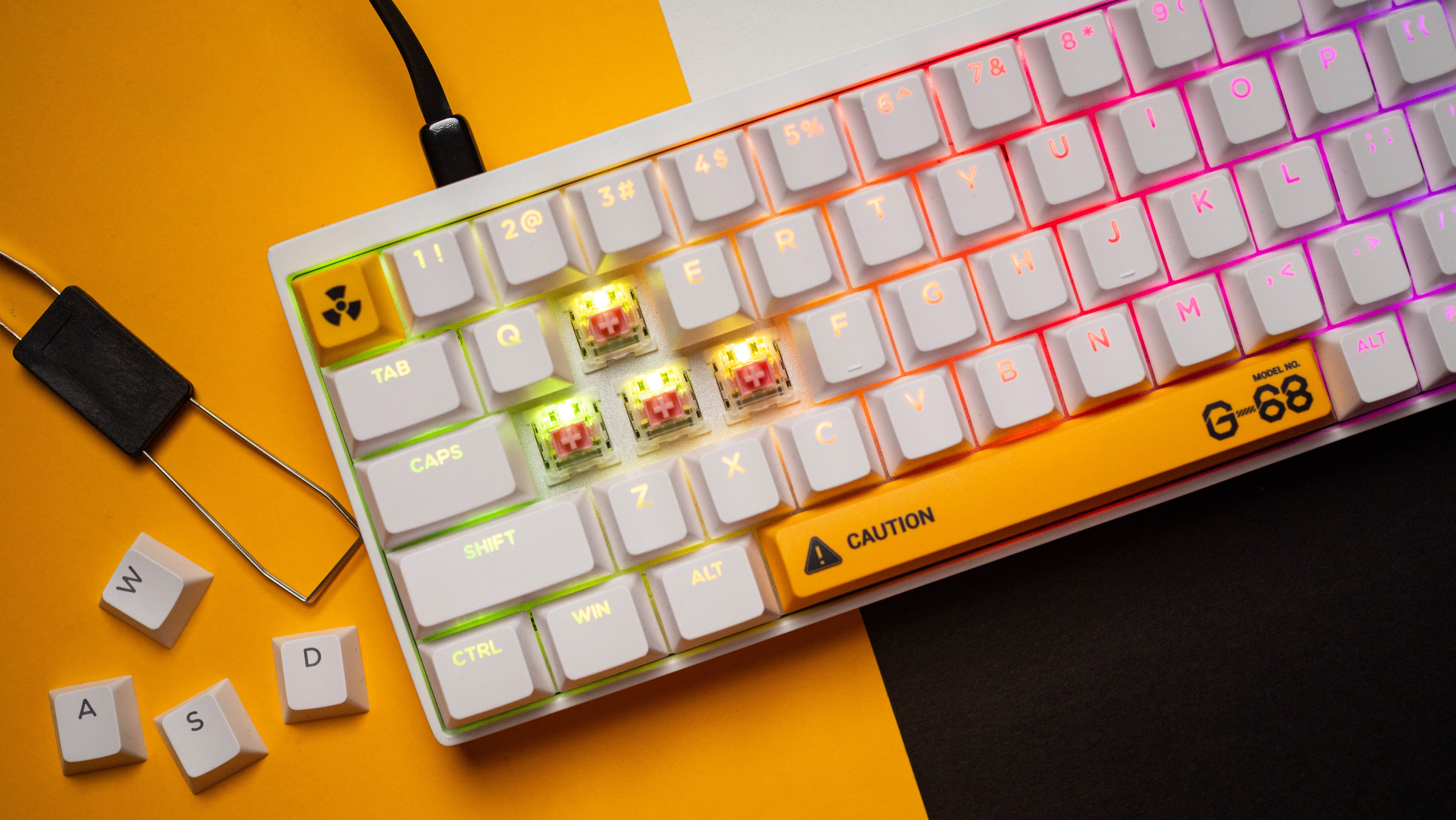

The ability to adjust the actuation point is quite novel, and it makes a noticeable difference while gaming. It may not have the extras that you get with Razer and Corsair gaming keyboards — like extensive RGB customizability or rotary knobs — but the Chronos 68 excels at the basics. I still enjoy Glorious' GMMK 3 Pro, but the fact remains that Syntech's offering costs less than a third while still providing hall effect switches.
Ultimately, if what you need in a gaming keyboard is highly adjustable keys and good build quality, you'll like what the Chronos 68 has to deliver. It holds its own against the best gaming keyboards, and I don't really have much in the way of negatives to point out.
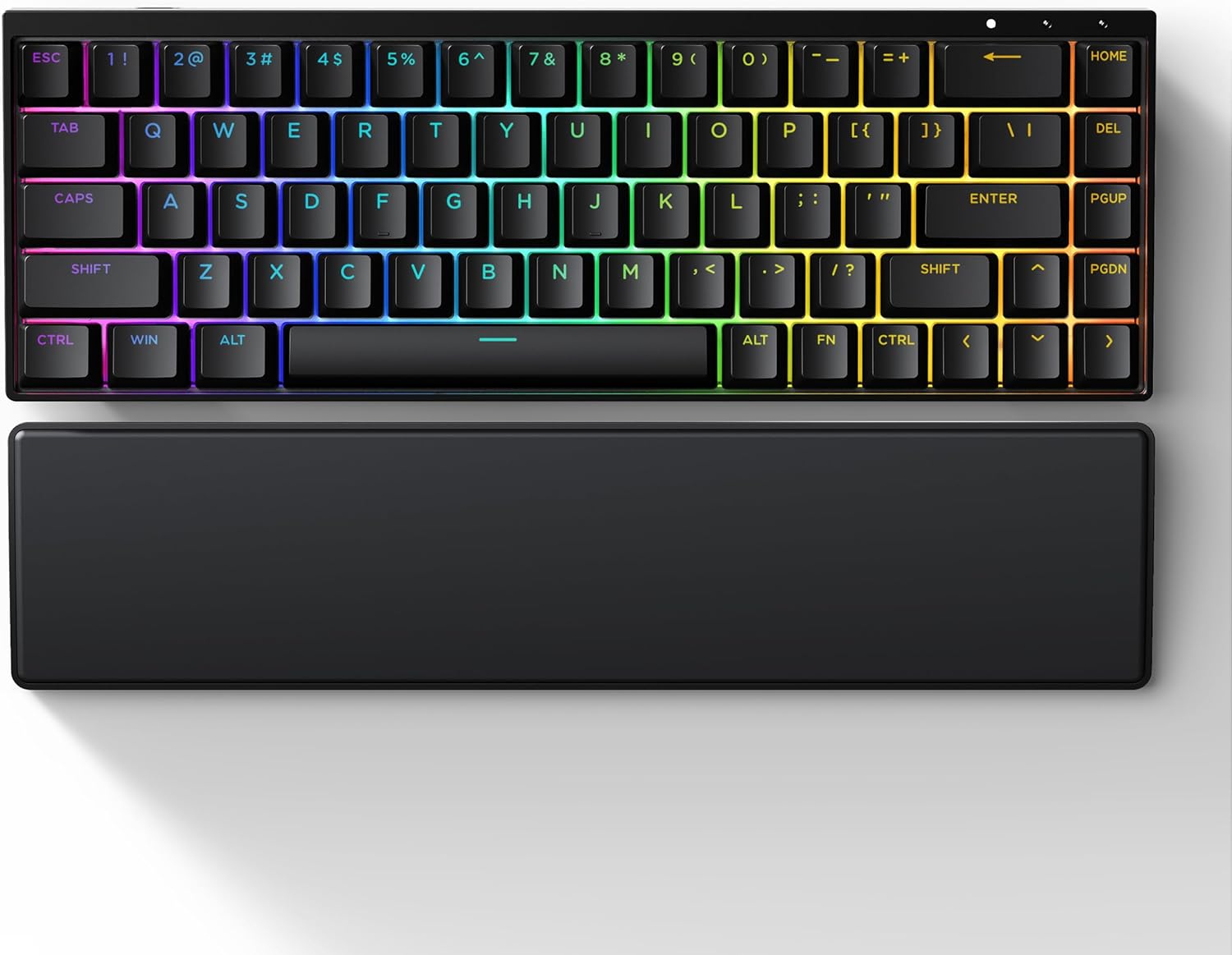
The Chronos 68 is a 65% gaming keyboard with good hall effect switches. The minimalist design combined with customizable actuation point gives the keyboard an edge, and thanks to 8,000Hz polling, it is one of the fastest gaming keyboards available today.

Follow Windows Central on Google News to keep our latest news, insights, and features at the top of your feeds!

Harish Jonnalagadda is a Senior Editor overseeing Asia for Android Central, Windows Central's sister site. When not reviewing phones, he's testing PC hardware, including video cards, motherboards, gaming accessories, and keyboards.
You must confirm your public display name before commenting
Please logout and then login again, you will then be prompted to enter your display name.
